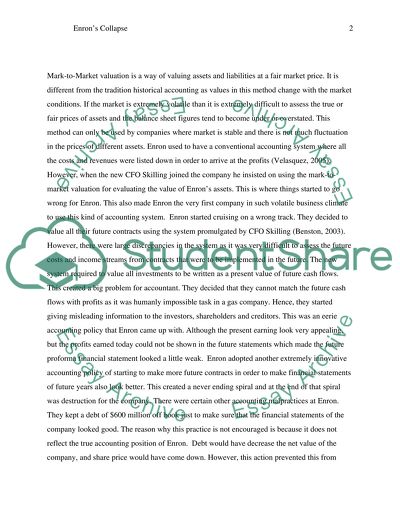Cite this document
(“Enron's Collapse and Ethical Framework Essay Example | Topics and Well Written Essays - 2250 words”, n.d.)
Retrieved from https://studentshare.org/marketing/1430981-enron-collapse-case-study
Retrieved from https://studentshare.org/marketing/1430981-enron-collapse-case-study
(Enron'S Collapse and Ethical Framework Essay Example | Topics and Well Written Essays - 2250 Words)
https://studentshare.org/marketing/1430981-enron-collapse-case-study.
https://studentshare.org/marketing/1430981-enron-collapse-case-study.
“Enron'S Collapse and Ethical Framework Essay Example | Topics and Well Written Essays - 2250 Words”, n.d. https://studentshare.org/marketing/1430981-enron-collapse-case-study.


